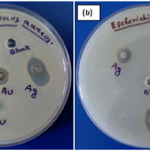 Infections in hospital are a persistent concern, with a recent report suggesting that the cost is around $10 billion in the US alone. It’s an issue that is being tackled by a number of interesting technologies.
Infections in hospital are a persistent concern, with a recent report suggesting that the cost is around $10 billion in the US alone. It’s an issue that is being tackled by a number of interesting technologies.
For instance, Vital Vio provide disinfectant lighting to hospitals and restaurants. The service utilizes a form of disinfectant lighting, which the makers believe will reduce the kind of harmful microrganisms that are so rife in our hospitals by as much as 99.9%.
Meanwhile, a German company is hoping to deploy AR against the problem. The company, called AR-Check, aims to use augmented reality to provide professional cleaners with additional information about the facilities they’re working in. For instance, they could see a progress report showing parts of the room they’ve cleaned, with the potential for gamification to be used to help motivate them.
What’s more, this data could also be fed back to managers so that they can monitor progress and gain a longer-term perspective on the cleanliness of their facility. This could be especially useful in hospitals and other care facilities where infection control is such a big issue.
Taking a slightly different tack are the Nonwovens Innovation and Research Institute Ltd (NIRI). The Leeds based organization have developed antibacterial push pads and pull handles to be fitted to doors in hospitals to try and halt the spread of infection. The hope is that it bolsters the infection control within hospitals by providing an extra layer of protection for the time between someone washing their hands and using a door.
The Surfaceskin pads self-disinfect themselves each time the door is opened. The pads release a small amount of antibacterial solution via a micro-valved top sheet. The pads are designed to kill many of the commonest germs present in hospitals, including MRSA and Norovirus.
Stopping bacteria in its tracks
A team from the Swedish Medical Nanoscience Center at the Karolinska Institutet in Sweden have developed a way to manipulate plastics and stop the spread of infections by using silver nanoparticles and a tiny electrical current.
The team are tackling one of the most specific methods of infection spreading in hospitals – via the equipment used by medical staff. The challenge with using silver and electricity to kill bacteria is that it can also be harmful to humans. The researchers overcame this in initial tests on the Staphylococcus aureus pathogen, with bacteria completely destroyed on surfaces where a small electrical current was deployed onto a surface layered with silver nanoparticles.
The team hope that the solution could play a crucial role in keeping infections under control in hospitals and other healthcare environments.
It’s likely that no one single solution will tackle this crucial problem, but hopefully collectively they can make a real dent and make our hospitals less damaging to our health.